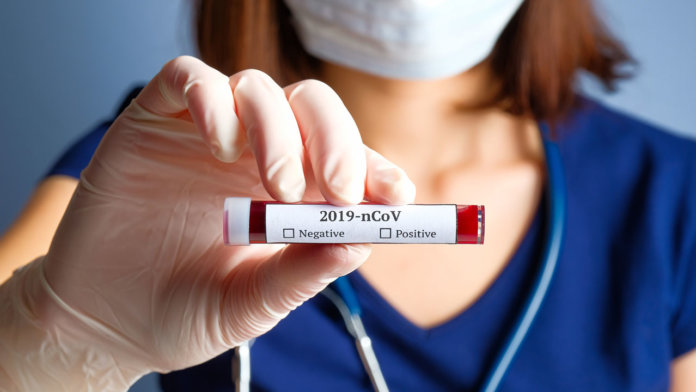Russia has closed 16 checkpoints on the border with China in a desperate attempt to prevent the spread of the Covid-19 coronavirus, which has so far killed 722 people and has infected 34,641. However, even this measure did not stop the penetration of the virus into the country, 2 cases of the disease have already been recorded, fortunately, without deaths.

Experts predict that the real number of people with this disease may reach 1,000,000. Let's figure out what is terrible about the coronavirus, as well as analyze the prevention methods recommended by the Russian Ministry of Health.
What is the Wuhan coronavirus?
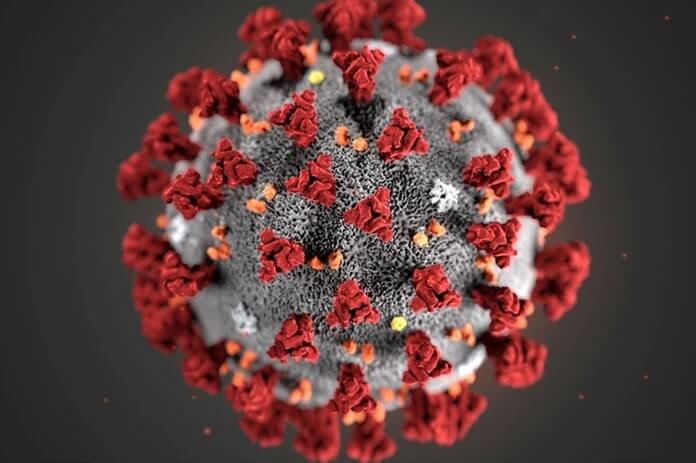 It is a type of virus that can cause disease in domestic and wild animals, as well as humans. The virus enters the cells inside the host and uses them to reproduce itself and disrupt the normal functioning of the body.
It is a type of virus that can cause disease in domestic and wild animals, as well as humans. The virus enters the cells inside the host and uses them to reproduce itself and disrupt the normal functioning of the body.
Coronaviruses are named after the Latin word "corona" because they are enclosed in a needle-like shell that resembles a royal crown.
- The Wuhan coronavirus strain is called Covid-19, and does not have a more detailed name because it is still poorly understood. It is a single-stranded RNA virus that can cause acute respiratory syndrome with complications of pneumonia or respiratory failure, with the risk of death.
- A strong cause for concern is that no one is immune to this virus because they have not encountered it before. This means that Covid-19 may be able to do more harm than diseases we face often, such as the flu or the common cold.
- Most seasonal influenza viruses have a case fatality rate of less than 1 per 1000 people. But in the case of Covid-19, the mortality rate is much higher. Elderly patients with chronic diseases are at particular risk.
Where did the virus come from?
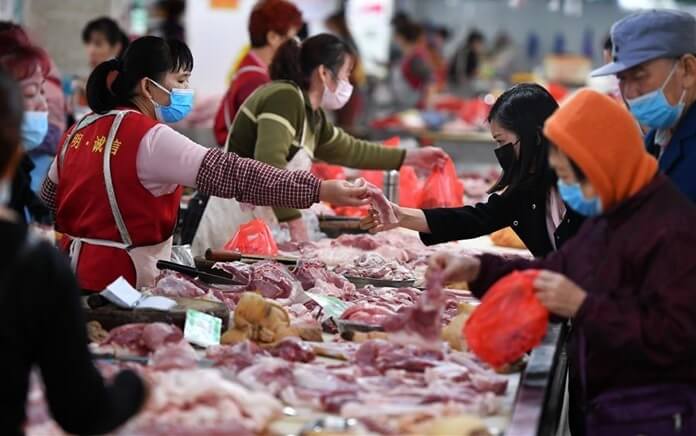 Coronaviruses tend to occur in animals. Thus, the dangerous viruses SARS-CoV (atypical pneumonia) and MERS-CoV (Middle East respiratory syndrome) are believed to have originated in civets and camels, respectively.
Coronaviruses tend to occur in animals. Thus, the dangerous viruses SARS-CoV (atypical pneumonia) and MERS-CoV (Middle East respiratory syndrome) are believed to have originated in civets and camels, respectively.
The first cases of the virus in Wuhan were in people visiting or working at a seafood market that also sold dead and live animals, including snakes, peacocks, porcupines and camel meat.
It is believed that the source of the Covid-19 infection is from animals, namely the horseshoe bats.
Researchers from the Chinese Academy of Sciences have stated that they are the natural carriers of the Wuhan coronavirus.
But there may be an unknown intermediate link between bats and humans.
There is a hypothesis that they are snakes, which were also sold in the market in Wuhan. This is evidenced by the results of a study conducted by scientists from Peking University. They performed a genetic analysis of the coronavirus and found that they most closely match the viruses that affect snakes.
And the main way of spreading the disease was transmission from person to person.
Can you get infected with coronavirus through parcels from China?
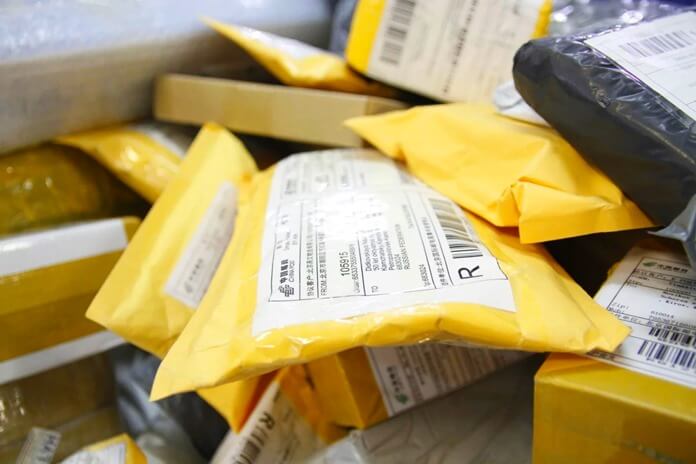 In short, no, you can't. Under ideal conditions, the virus will live outside the carrier for no more than 5 days. And parcels usually take longer.
In short, no, you can't. Under ideal conditions, the virus will live outside the carrier for no more than 5 days. And parcels usually take longer.
At the moment, not a single case of infection with the Wuhan coronavirus through objects has been recorded.
Top recommendations of the Ministry of Health for the prevention of coronavirus Covid-19
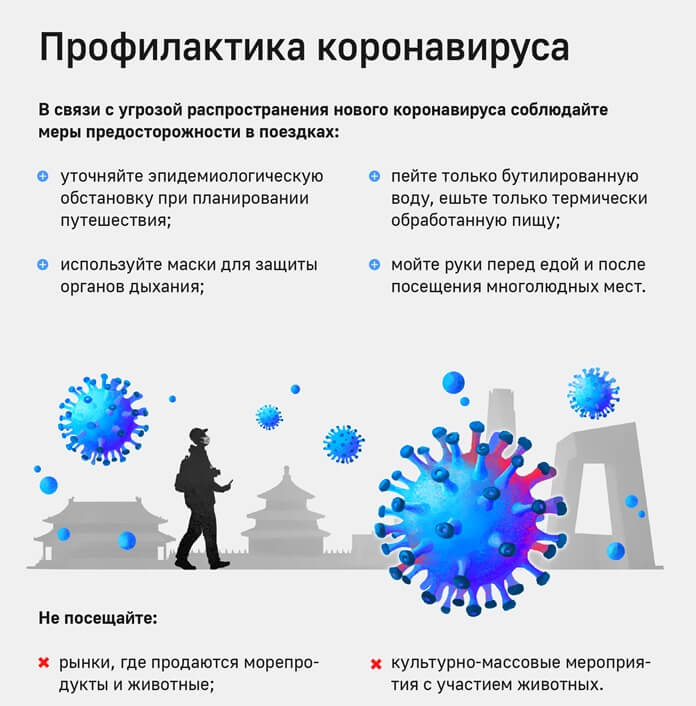
6. Check the epidemiological situation when planning your travel
Of course, China should be struck off the list of visits. However, other countries also have cases of the Wuhan coronavirus. Most cases were noted in Thailand - 25, Japan (89 cases), Singapore (33 cases), Hong Kong (26 cases), South Korea (24 cases) and Taiwan (16 cases) also got into the top five.
5. Wear respiratory protection masks
The disease can spread between people through coughing and sneezing, and even through the mucous membrane of the eyes (if you rub them with your hands, which will have the virus). Moreover, an infected person can infect others even before he has the first symptoms.
It is important not only to wear a medical mask when visiting public places such as hospitals, markets, schools, etc., but also to remove it correctly. Do not touch the front of the mask with your hands, as it may be dirty.
4. Wash your hands before and after visiting crowded places
Close contact with other people, including shaking hands and sharing cutlery, can lead to infection with the coronavirus.
Moreover, it is known that the virus can be transmitted from a "third party" - a person who has been in contact with an infected person. So wash your hands thoroughly before eating and after visiting crowded places.
3. Drink bottled water and eat cooked food
For the prevention of coronavirus, as well as other diseases transmitted by airborne droplets, it is better to drink water that is "in contact" with a minimum number of people.
However, it is worth considering that bottled water is one of the most counterfeited products in Russia... The label of quality water must contain information about the source of the water (well or water supply), the number of the well, as well as the date of bottling and shelf life of the water, its degree of hardness and mineral composition.
As for the heat treatment of the product, the coronavirus cannot withstand temperatures above 40 degrees.
2. Do not go to markets where animals and seafood are sold
Since the first cases were infected after visiting such a market, it is wise to stay away from such places. Moreover, scientists have not yet established exactly from which animal the coronavirus was transmitted to humans.
1. Do not attend cultural events involving animals
Such events are a source of increased danger "two in one". This is a massive gathering of people, and the presence of animals, which can also be carriers of the virus. If such an event cannot be avoided, put on a medical mask and try not to approach other people and animals closer than 2 meters.
Important: if you feel unwell, see a doctor immediately. If you feel unwell after returning from the PRC, be sure to tell your doctor about the date and place of your stay.
Symptoms of the coronavirus Covid-19
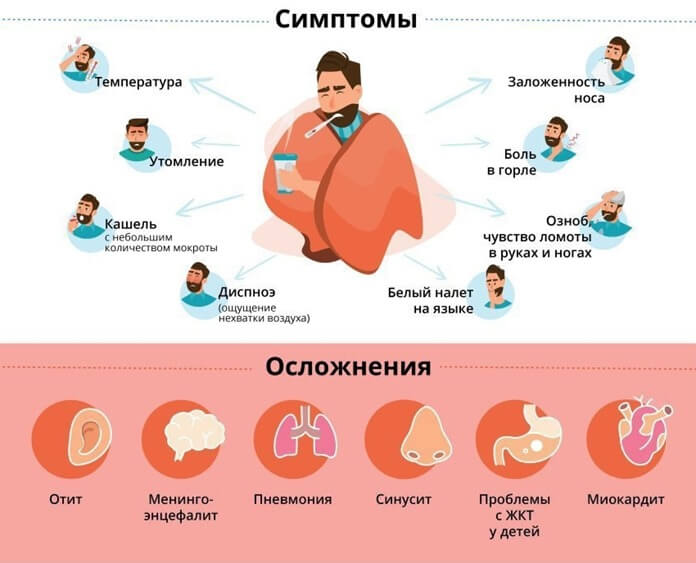 After the virus has entered the body, it can take 2 to 14 days before the first symptoms appear. But a person with coronavirus can still be contagious during their asymptomatic period.
After the virus has entered the body, it can take 2 to 14 days before the first symptoms appear. But a person with coronavirus can still be contagious during their asymptomatic period.
Typical symptoms of the Wuhan coronavirus include:
- runny nose;
- cough;
- a sore throat;
- fever (high temperature).
The vast majority of patients - at least 97 percent, based on the available data - recover from illness without any problem or medical attention.
A small group of patients, mainly the elderly or people with chronic diseases, after contracting the coronavirus can get pneumonia - pneumonia. With this dangerous disease, breathing becomes difficult, and if pneumonia is not treated, a person may die.
Can the Wuhan virus be cured?
Currently, there is no vaccine against the Chinese coronavirus, and its treatment is only symptomatic, including artificial ventilation of the lungs, if the patient has respiratory failure.
Antibiotics do not work against viruses. Antiviral drugs work, but it will take years and huge amounts of money to develop a drug for this strain of the virus.
The US National Institutes of Health and Baylor University in Texas say they are working to create a vaccine based on knowledge about coronaviruses in general. Scientists also use information gleaned from the SARS outbreak. But this development may take a year or more.
Currently, the governments of different countries are working to contain the spread of the coronavirus and provide care for the infected people.

